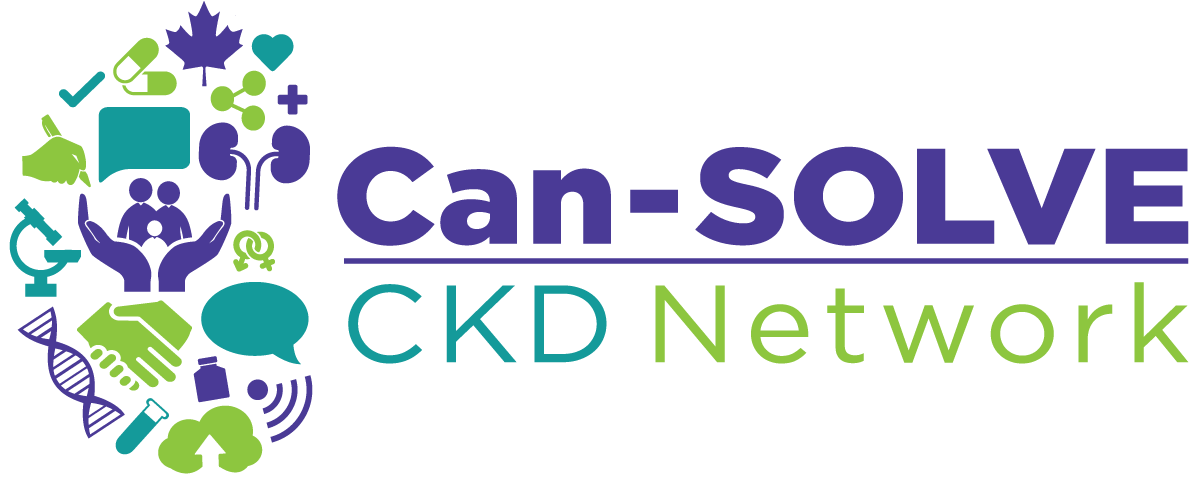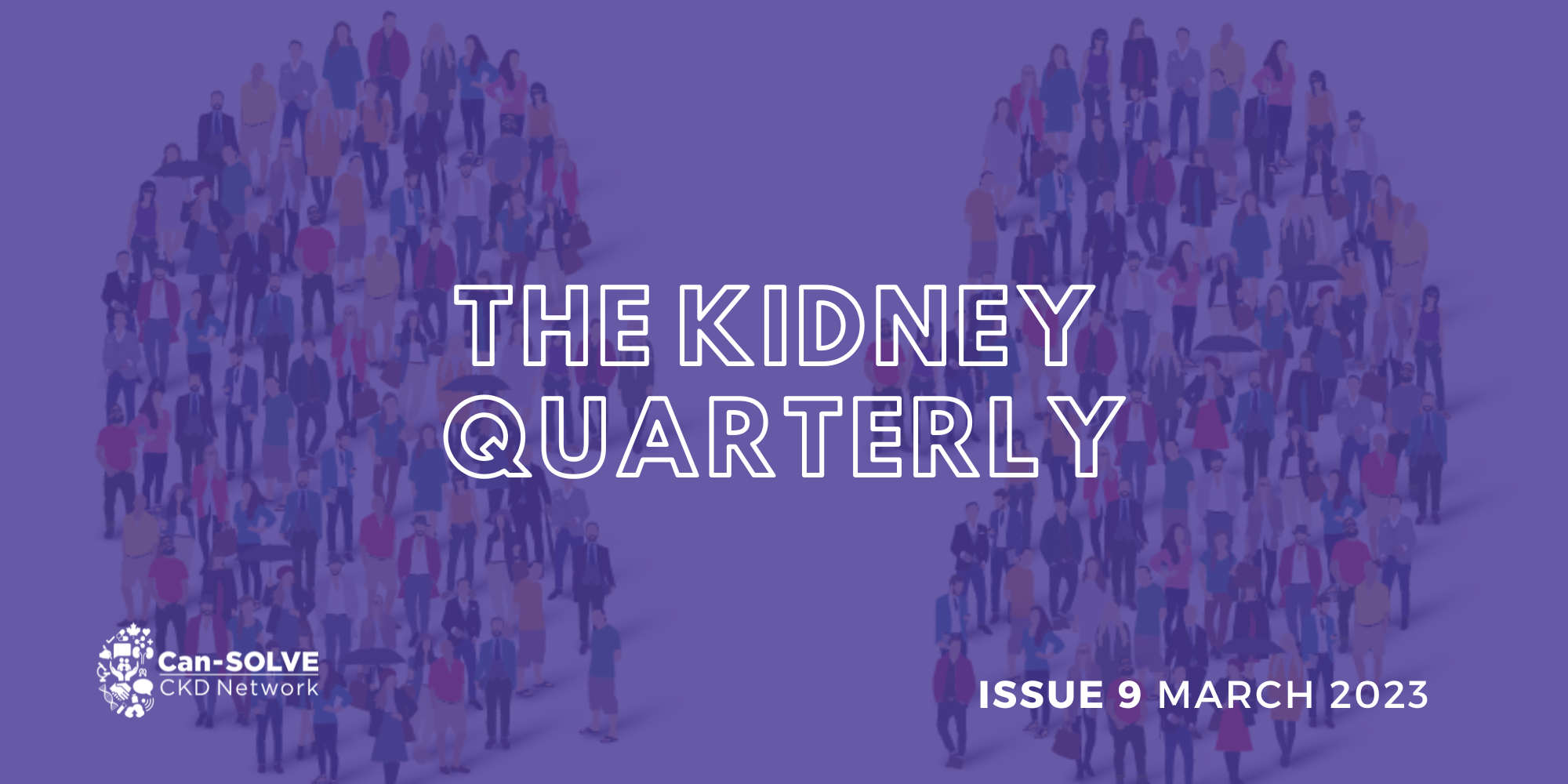
Health research aims to improve treatment, care, and quality of life. But when some individuals and groups are excluded from participating in research, we fall short of this goal.
The lack of equity, diversity and inclusion (EDI) in health research results in very real consequences. For decades, clinical trials were predominantly done in men, who have different biology and physiology than women. As a result, many drugs that were harmful to women hit the market and were subsequently recalled. As well, many people who are Black, Indigenous and People of Colour (BIPOC) have historically been excluded from research or have been the subject of racist studies, which has exacerbated health inequities and fostered mistrust in the medical system.
Importantly, diversity extends beyond gender and race to encompass a wide breadth of factors, including: culture, age, sexual orientation, ability, national origin, social economic class, religion, professional status and more.
This issue of The Kidney Quarterly highlights the different steps that Can-SOLVE CKD is taking to embody EDI in its work.
Cultural Competency
The importance of EDI in research
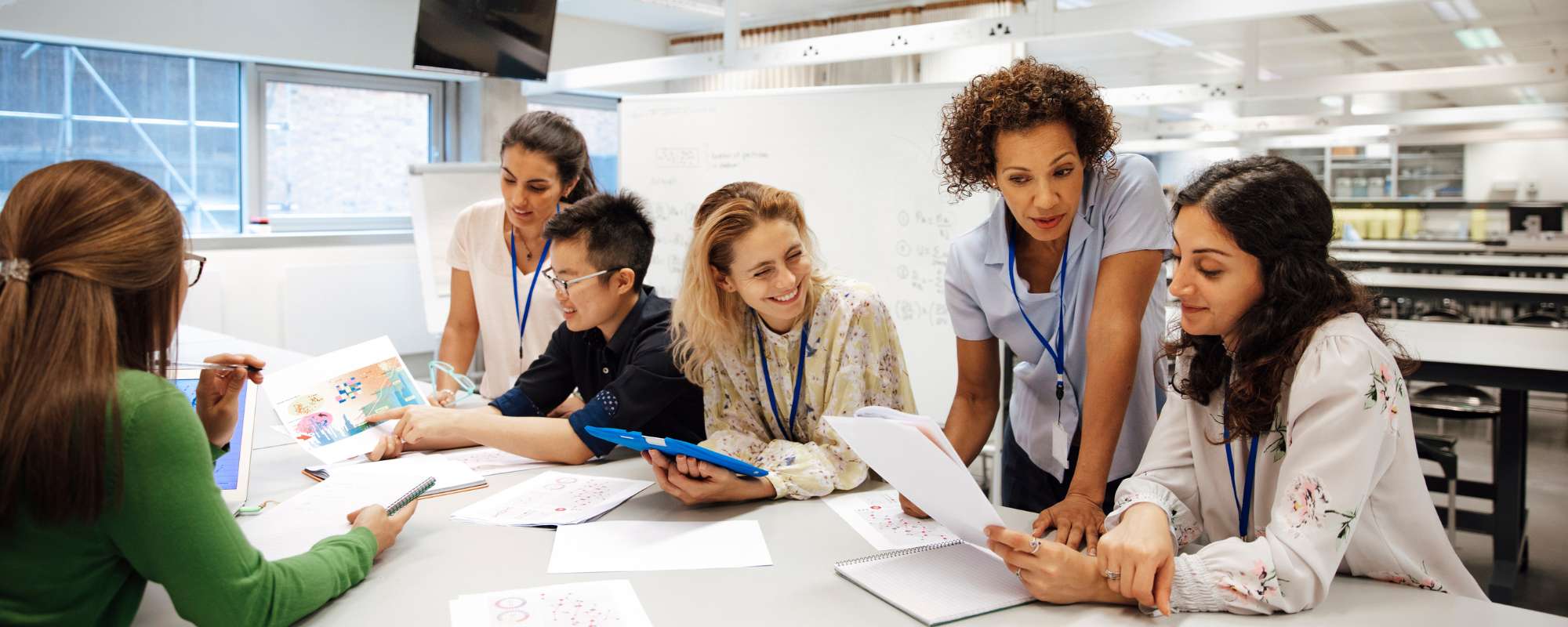
As a research network that values patient priorities above all, Can-SOLVE CKD has a responsibility to embody EDI in everything it does.
Craig Settee is Cree/Anishinaabe from Winnipeg, Manitoba (Treaty 1 Territory) and a citizen of Fisher River Cree Nation (Treaty 5 Territory), Manitoba, who has spent years helping to amplify Indigenous voices within the Can-SOLVE CKD Network as Cultural Competency Manager.
“As BIPOC, we’re often marginalized and have less access and control over our own health care priorities, unless we really advocate for it,” he explains.
Settee notes that the exclusionary policies and biases of Western society are the product of omitting BIPOC voices from the conversation. “It is people who are creating policies and people who advocate for things to happen,” says Settee. “So if BIPOC voices aren’t included, those policies will result in biased research which doesn’t reflect our priorities.”
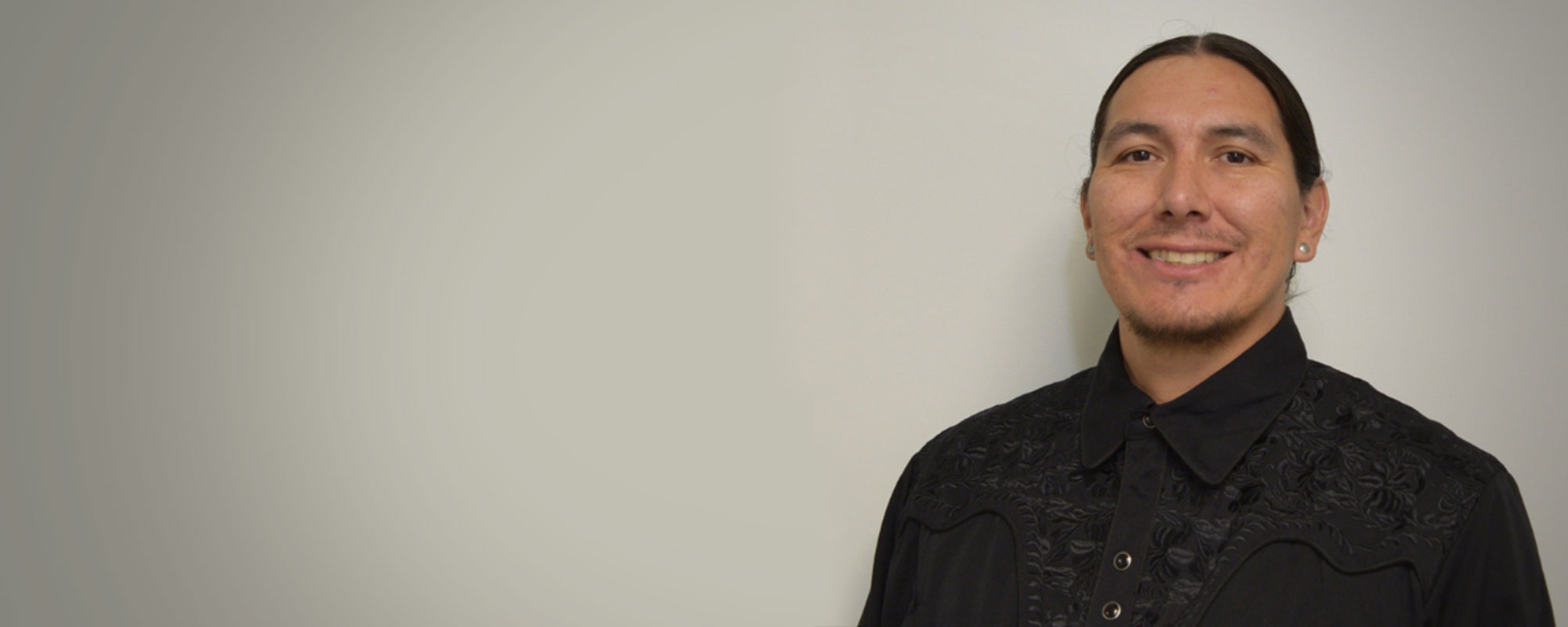
Craig Settee
He notes that while EDI shares some similarities with Indigenous cultural competency, there are important distinctions between the two. Cultural competency in part requires embodying EDI, but also aims to educate health care practitioners and researchers of the unique challenges First Nations, Inuit and Métis face due to colonization and colonialism. Cultural competency is part of a greater journey to create culturally safe spaces for Indigenous people, as defined by those who receive it.
Settee says he is interested in seeing how EDI initiatives within the network could be used to help advance cultural competency initiatives, and vice versa. He emphasizes the need for all network members to work together to achieve our goals.
“Nobody knows everything, so everyone has a chance to pick up pieces from these different pillars and trainings and carry with them when they engage with patient partners and other partners in work,” he says. “So I think the goal is to continue to learn with each other and teach each other about our experiences and how they can benefit health research.”
"As BIPOC, we’re often marginalized and have less access and control over our own health care priorities, unless we really advocate for it."
Craig Settee
Cultural Competency Manager
Can-SOLVE CKD Phase 2
How Can-SOLVE CKD is advancing EDI in Phase 2
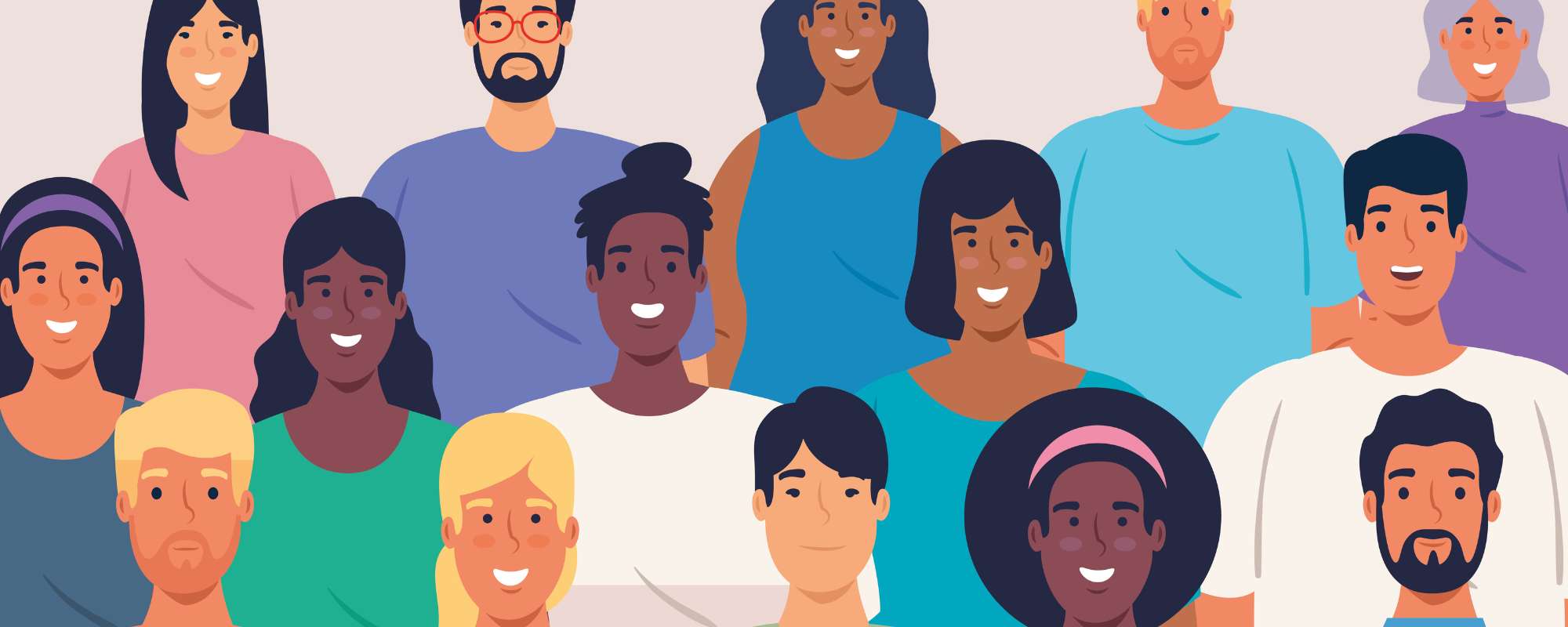
The core objective of Can-SOLVE CKD is to improve kidney care and health for all by including diverse voices from people affected by kidney disease. However, research is often subject to biases – some unconscious and some overt – that have too often excluded some groups from participating or from having their voices heard. To ensure equity, diversity and inclusion (EDI) in research, extra actions are required within our network and other research networks across the country.
Can-SOLVE CKD has launched several EDI initiatives in the past, such as the creation of our core values statement and collection of actionable guiding principles, but more work is planned as part of the network’s second phase. This includes EDI training for network members, an EDI audit, and the formation of a working group.
Last September, dozens of Can-SOLVE CKD members attended a webinar by Dr. Sofia Ahmed, a nephrologist who specializes in sex and gender research at the University of Calgary. She began by discussing the topic of unearned privilege and pointing out examples in her own life.
She notes that these factors related to unearned privilege don’t mean she has not worked hard to get to where she is today. “It just means these are all things I have never had to think about in my journey to get to here,” she explains. “And this perspective might spill over into what research I think is important, how I conduct my research, who I include on the team, and how I interpret and disseminate my research.”
From there, Dr. Ahmed presented important real-life examples of racial and gender biases in research, and how these have negatively impacted women and people of colour.
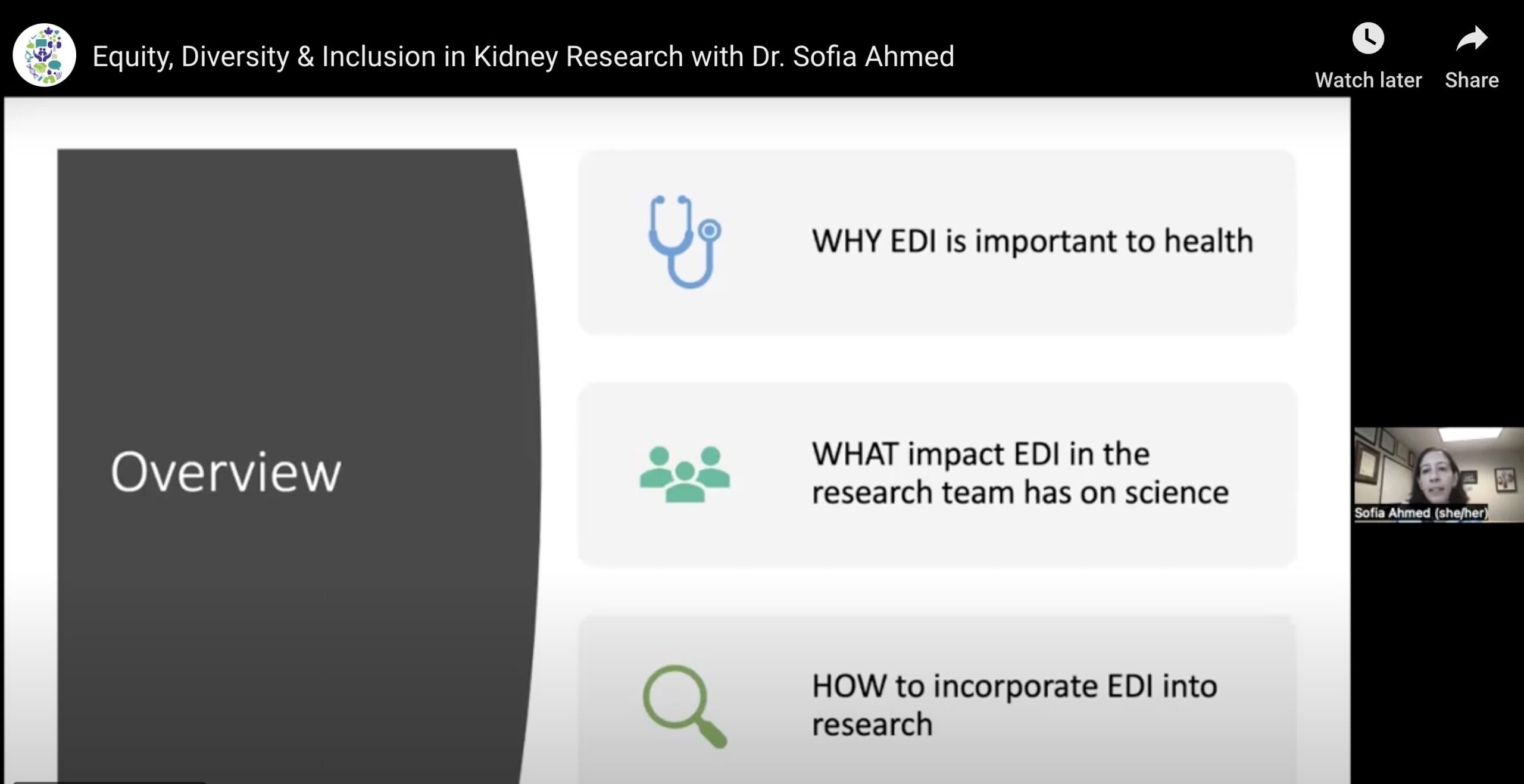
EDI webinar
“It was a really good presentation,” says Selina Allu, a Can-SOLVE CKD staff member who will be helping to form an EDI working group within the network. “One thing that stood out in my mind from the presentation is when Dr. Ahmed said, ‘To measure is to know’ – we need to be able to track what we’re doing as a network.”
An audit of EDI practices within Can-SOLVE CKD will be led by Keila Turino Miranda, a sex and gender champion who focuses on transgender health barriers. She is currently at the University of Calgary completing her Master’s thesis on the validation of glomerular filtration rate estimation equations in transgender individuals on gender-affirming hormone therapy.
Her audit will take a snapshot of current EDI principles and practices within Can-SOLVE CKD, identify gaps, and inform the development a practical “how to” tool to meet the network’s Phase 2 EDI goals.
In parallel, Allu will be convening an EDI working group of diverse members to help advance relevant initiatives within the network. Allu says the working group will broaden its scope to include “Accessibility,” reframing EDI as IDEA.
Allu says the working group, using results from the EDI audit, will work throughout the spring and summer to develop a more realized EDI/IDEA plan by fall 2023. But she emphasizes that EDI is everyone’s responsibility. “Staff, patient partners, researchers – we are all tasked with being responsible for embodying EDI principles,” she says.
"Audits like this are important for improving performance and providing Can-SOLVE CKD with feasible objectives to make informed decisions to promote the health of Canadians."
Keila Turino Miranda
Sex and Gender Champion
Projects
Gender-diverse and Indigenous-specific content to be added to the My Kidneys My Health website

As Can-SOLVE CKD enters Phase 2, research teams are exploring ways to enhance their EDI efforts. For the team that created My Kidneys My Health, an online tool to help patients self-manage their kidney health, this involves adding new content to support the unique needs of certain groups, including Indigenous communities and gender diverse people.
To do so, the research team is taking a multi-pronged approach that involves EDI and cultural competency training, consulting relevant partners, and creating an inclusive environment for collaboration.
“We are hoping that we can adapt and enhance My Kidneys My Health – for example, this may involve including relevant language, inclusive visuals, etc. – to increase relevance and reach to other groups,” explains Dr. Maoliosa Donald, an Implementation Scientist at the University of Calgary Division of Nephrology, who is co-leading the project.
The research team is making the relevant changes to the self-management tool based on feedback from patient partners, specifically members of Indigenous communities and gender diverse groups. For example, the team has already recruited a patient partner who is interested in sex- and gender-related needs and are working with Can-SOLVE CKD Indigenous Liaison Manager Catherine Tuner to identify additional Indigenous patient partners interested in collaborating on the project.
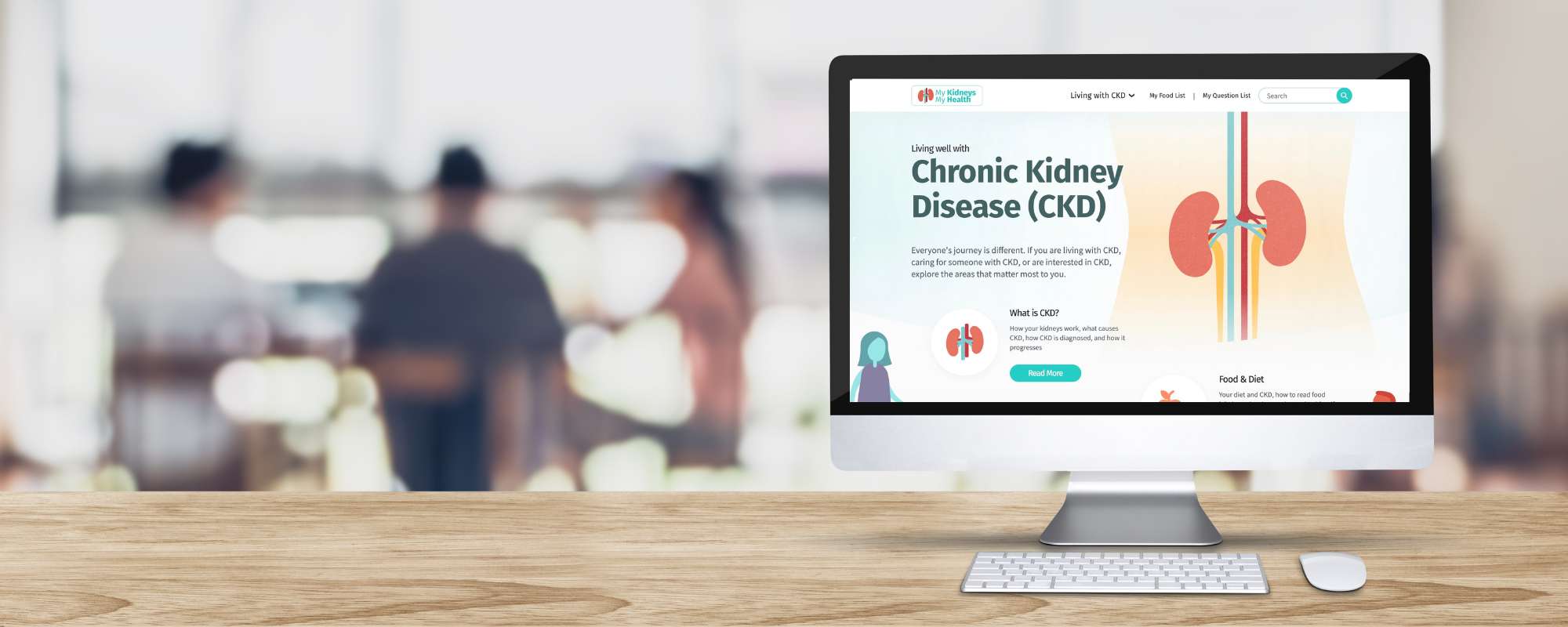
My Kidneys My Health website
As well, the team has engaged with Turner and the University of Calgary Indigenous Research Support Team to understand the broader Indigenous landscape and received guidance on respectful partnerships with Indigenous communities. Dr. Donald notes that their approach is rooted in the 6 Rs of Indigenous Community Engagement – Respect, Reciprocity, Relevance, Relationships, Reflection, ReconciliACTION.
She notes that this experience has also impacted her on a personal level. “This work has made me think more deeply about experiencing someone else’s reality living with kidney disease as a marginalized individual,” she says.
In the end, Dr. Donald says she hopes this work will result in an even more comprehensive self-management tool that fulfills the needs of people who have been traditionally marginalized in research.
"We try to ensure that we support an inclusive culture where all team members are invited to share their views and are seen as valuable members of the team."
Dr. Maoliosa Donald
Implementation Scientist at the University of Calgary Division of Nephrology
Partnerships
Can-SOLVE CKD and the Black Health Alliance partner up with a shared EDI vision

In Canada, Black people are disproportionately affected by chronic disease, including kidney disease, and yet face many barriers related to racism and health inequity that result in subpar quality of care compared to the general population. The Black Health Alliance is a nation-wide organization dedicated to addressing these health inequities.
Lydia-Joi Marshall, a research associate at the University Health Network in Toronto, first volunteered with the group as a teenager in more than 20 years ago and is now director for the Alliance. About 20 years ago, Marshall and other members of the Black Health Alliance were studying disparities in dialysis and kidney health in the black community. “We were seeing such a gap in health outcomes,” Marshall recalls. “So when this opportunity came up [to partner with Can-SOLVE CKD] nearly 20 years later, we knew… the work that Can-SOLVE CKD was already doing aligned exactly with what we were looking for.”
In particular, Marshall says was drawn to Can-SOLVE CKD when she heard more about the Indigenous Peoples’ Engagement and Research Council (IPERC). “We really felt the model they had was something that would also support our community,” explains Marshall. “That was the jump to say this is an appropriate partnership.”
A key goal of the Black Health Alliance is to amplify voices from the black community and ensure they are included in the research process, similar to how Can-SOLVE CKD aims to amplify Indigenous and non-Indigenous patient voices in research.
However, Marshall notes that this inclusion of voices shouldn’t be added “icing” at the end of the research process.
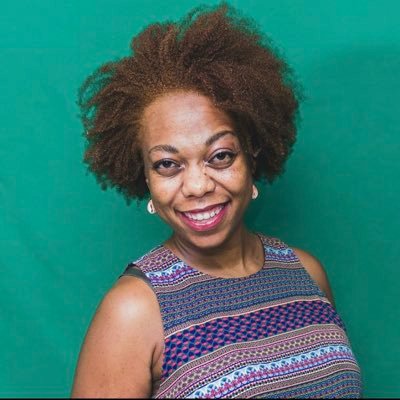
Lydia-Joi Marshall
She emphasizes the need to dig deeper into EDI issues and to be specific in outlining the actions we take to achieve it. “Sometimes I feel like we have this EDI conversation at such a high level that we don’t come up with any tangible real steps,” says Marshall. “And I think that we shouldn’t be afraid to.”
This involves going beyond saying “let’s be nice to each other,” says Marshall, and outlining specific steps depending on the issue or group that is being excluded or marginalized from research (e.g., whether the issue is sexism, ableism, anti-black racism, etc.). As well, she emphasizes the need to rethink who the experts are – to not just include the voices of the nephrologists or social workers, but the people who have been excluded from the conversation.
The partnership between Can-SOLVE CKD and the Black Health Alliance is still in the early stages, but Marshall sees much potential and opportunity for mutual learning between the two groups. “I think that, through our partnership, we are able to bring more awareness to what both of us are doing, because it’s really in complete alignment,” she says.
“We often speak about EDI like it’s an extra...but it’s actually the foundation of everything we’re doing."
Lydia-Joi Marshall
Black Health Alliance
Connect with us!
Subscribe to learn more about what we do, why it matters, and how you can get involved!
